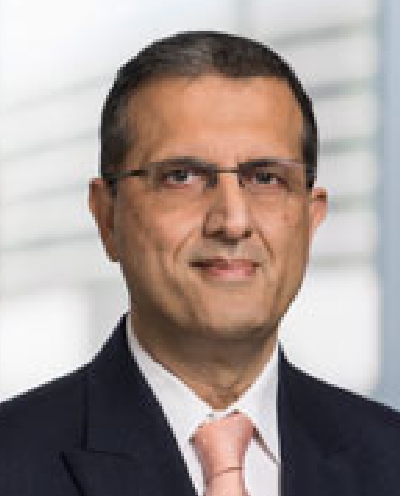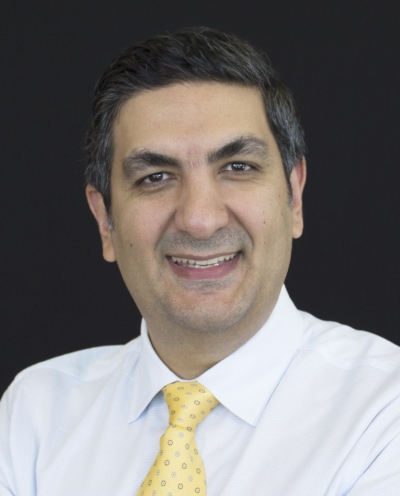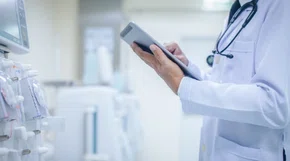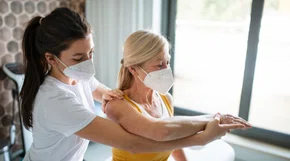
President’s letter
2023 Metrics
Cycle of Translation
Visionary Gifts

Discovery to Clinic

Innovative Education

Translational Luminaries
Introduction
Jerold B. Katz Academy of Translational Research
Infectious Diseases Research Fund
Houston Methodist Dr. Mary and Ron Neal Cancer Center
Ann Kimball and John W. Johnson Center for Cellular Therapeutics at Houston Methodist
The Food & Health Alliance within the Houston Methodist Lynda K. and David M. Underwood Center for Digestive Disorders, Immunology Center and the Fondren Inflammation Collaborative
Houston Methodist Cockrell Center for Advanced Therapeutics
Paula and Joseph C. “Rusty” Walter III
Translational Research Initiative
COVID-19 Studies
Outcomes Research
Houston Methodist Researchers Are Developing Mobile Apps to Improve Clinical Outcomes in Patients
Houston Methodist-Developed Algorithm May Improve Management and Outcomes in Critically ill COVID-19 Patients
Wearable Devices May Provide New Treatment Option for Glioblastoma
Restorative Medicine
Houston Methodist Investigators Nanotechnology Investigators Awarded Prestigious Grants from the Department of Defense
Houston Methodist Advances Research into Neural Prosthetics
An Innovative Approach to Treat Even the Most Stubborn-to-Heal Fractures
Cell Encapsulation May Hold the Key to Preventing Cell Transplant Rejection
Noninvasive Spinal Stimulation Works to Restore Movement After Spinal Cord Injury
Houston Methodist, Rice University, Baylor College of Medicine Design Noninvasive Tech to Help Remove Brain’s Metabolic Waste
Precision Medicine
Novel Drug Combination Can Target Triple-Negative Breast Cancer for Treatment
Importance of the Coronary Artery Calcium Score in Risk Assessment and Prevention of Atherosclerotic Cardiovascular Disease
A Houston Methodist and Purdue University Breakthrough May Result in a More Effective Tuberculosis Vaccine
Cancer Cell Type (Seed) and Tumor Microenvironment (Soil) Control Therapeutic Antibody Delivery and Efficacy
New Virtual Intensive Care Unit Simultaneously Improves Patient Care and Bed Capacity
result
Introduction
Joint Weill Cornell–Houston Methodist Academic Institute Doctoral Program Welcomes its Inaugural Class
Visionary EnMed Program Soars to New Heights
Neural Control of Organ Degeneration and Regeneration (NeuralCODR) Training Program
Faculty and Research Development
Graduate Medical Education



Science in Service
of
Medicineresult
President's letter
2021 Metrics
Cycle of Translation
Visionary Gifts of Hope


Introduction

Ann Kimball and John W. Johnson Center for Cellular Therapeutics at Houston Methodist

Houston Methodist Dr. Mary and Ron Neal Cancer Center

The Food & Health Alliance within the Houston Methodist Lynda K. and David M. Underwood Center for Digestive Disorders, Immunology Center and the Fondren Inflammation Collaborative

Houston Methodist Cockrell Center for Advanced Therapeutics

Paula and Joseph C. “Rusty” Walter III Translational Research Initiative

Jerold B. Katz Academy of Translational Research

Infectious Diseases Research Fund

From Discovery to Clinic


What is "Discovery to Clinic"?

Restorative Medicine


Houston Methodist Advances Research into Neural Prosthetics

Noninvasive Spinal Stimulation Works to Restore Movement After Spinal Cord Injury

An Innovative Approach to Treat Even the Most Stubborn-to-Heal Fractures

Cell Encapsulation May Hold the Key to Preventing Cell Transplant Rejection

Houston Methodist, Rice University, Baylor College of Medicine Design Noninvasive Tech to Help Remove Brain’s Metabolic Waste

Houston Methodist Investigators Nanotechnology Investigators Awarded Prestigious Grants from the Department of Defense

Precision Medicine


Cancer Cell Type (Seed) and Tumor Microenvironment (Soil) Control Therapeutic Antibody Delivery and Efficacy

New Virtual Intensive Care Unit Simultaneously Improves Patient Care and Bed Capacity

Novel Drug Combination Can Target Triple-Negative Breast Cancer for Treatment

A Houston Methodist and Purdue University Breakthrough May Result in a More Effective Tuberculosis Vaccine

Importance of the Coronary Artery Calcium Score in Risk Assessment and Prevention of Atherosclerotic Cardiovascular Disease

Translational Luminaries




Discovery to Clinic

COVID-19 Studies
Shedding Light on an Unseen Crisis: New Tools Build Health Care Worker Resiliency



Shedding Light on an Unseen Crisis:
New Tools Build Health Care Worker Resiliency

COVID-19 has brought the issue of healthcare provider fatigue to the forefront of national conversation, but experts at Houston Methodist have been studying it for many years.
During the initial COVID-19 surge in Houston, a team of researchers led by Faisal N. Masud, MD, the Mary A. and M. Samuel Daffin, Sr. Centennial Chair in Anesthesia and Critical Care at Houston Methodist, and Farzan Sasangohar, PhD, assistant professor of outcomes research, published a paper in Anesthesia & Analgesia discussing factors that contribute to provider fatigue and burnout in intensive care units (ICUs) during the pandemic. The article, which remained in Altmetric’s top 99th percentile of publications for months, was one of the first to propose specific policy recommendations for organizational readiness, resilience and disaster mitigation, many of which were already in place at Houston Methodist.

Faisal N. Masud, MD

Farzan Sasangohar, PhD
Most studies investigating burnout, including the aforementioned, rely on self-reporting measures that are inherently prone to bias. To better maintain objectivity, Sasangohar, Masud and their teams employed wearable technology to provide quantitative measurements of stress and anxiety levels in ICU workers. Participating ICU staff were observed while wearing eye-tracking glasses with a built-in camera that recorded exactly what the wearer was seeing and hearing in real time. The information collected from this device was paired with heart rate data and self-reported observations to provide a more complete picture of stress triggers and reactions.

“Nothing like this has ever been done before in an ICU setting,” said Sasangohar. “The use of wearable
technology combined with artificial intelligence could set the benchmark for future research on stress and burnout.”
Farzan Sasangohar, PhD


New wearable technology developed by Faisal N. Masud, MD, and Farzan Sasangohar, PhD, provides quantitative measurements of stress and anxiety levels in ICU workers. These devices will provide objective data in self-reporting measures.
While data analyses are still ongoing, the research team is using the preliminary results to explore potential mitigation strategies, including measures to limit or eliminate environmental, task-related
and technological sources of stress that contribute to burnout among ICU personnel. The next phase of this study is to utilize wearable technology to compare burnout among health care providers in COVID-19 ICUs with those in non-COVID-19 ICUs.
Masud, who is also the medical director of critical care at Houston Methodist Hospital, has been passionate about finding transformational solutions to support the mental well-being of intensive care personnel. “The wearable technology study could provide the evidence-based solutions we need
to fill the knowledge gap in health care provider stress and burnout,” he said. “COVID-19 and its far-reaching psychological implications have brought a greater sense of urgency to our work.”
More from Discovery to Clinic















